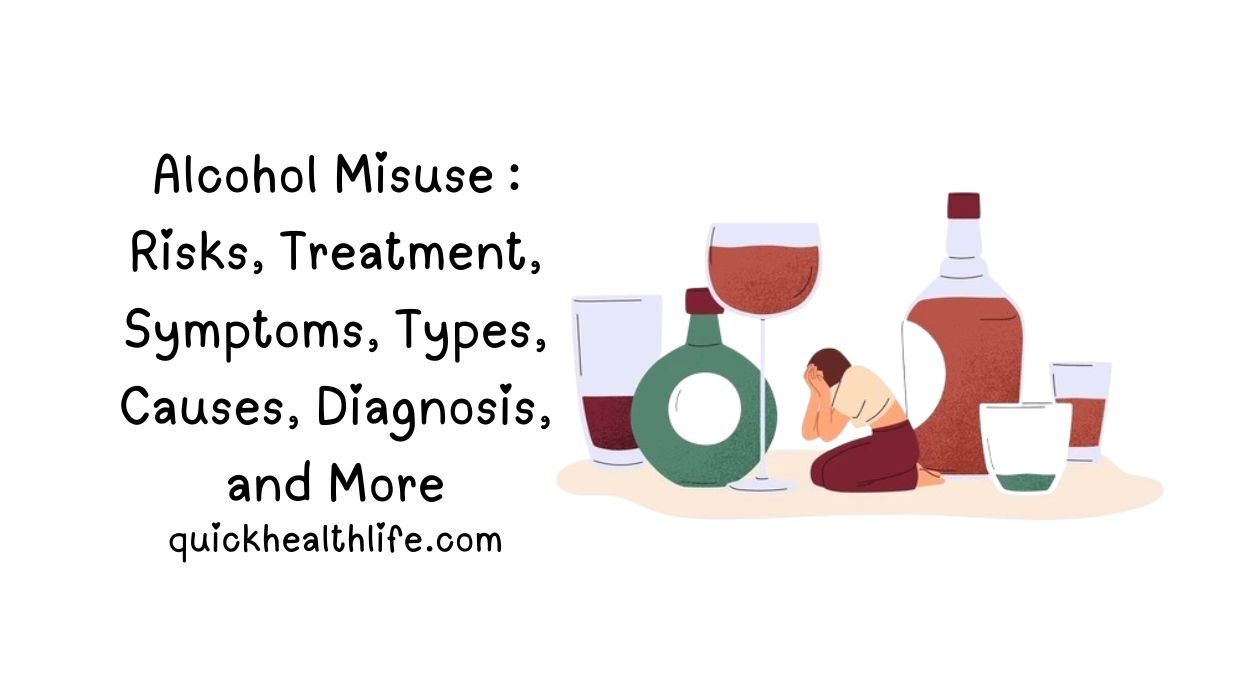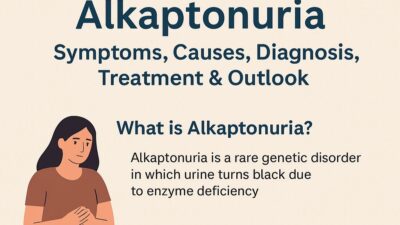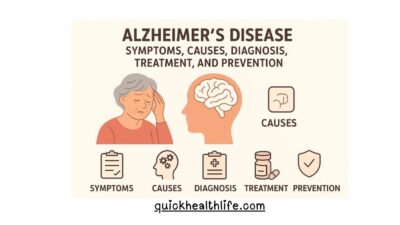Alcohol misuse is a widespread public health concern that affects millions worldwide. Excessive or unhealthy alcohol consumption disrupts not only physical well-being but also mental stability, relationships, and social functioning. Recognizing its symptoms, understanding the underlying causes, and seeking appropriate treatment are vital steps toward recovery.
What is Alcohol Misuse?
Alcohol misuse refers to the unhealthy or hazardous use of alcohol that leads to negative health and social consequences. It encompasses binge drinking, heavy drinking, and dependence. Unlike moderate alcohol consumption, misuse often results in impaired judgment, increased risks of accidents, and long-term health deterioration.
Table of Contents
Types of Alcohol Misuse
There are several patterns of alcohol misuse, each with distinct characteristics:
- Binge Drinking – consuming large quantities of alcohol in a short period, often leading to intoxication.
- Heavy Drinking – consistent high levels of consumption over time.
- Alcohol Dependence – a physical and psychological reliance on alcohol.
- Problem Drinking – irregular yet harmful drinking behaviors that interfere with responsibilities and relationships.
Causes of Alcohol Misuse
The causes of alcohol misuse are multifactorial, including:
- Genetic factors – family history increases vulnerability.
- Psychological issues – anxiety, depression, and trauma often drive excessive drinking.
- Social influences – peer pressure and cultural acceptance of alcohol encourage misuse.
- Environmental stressors – work stress, financial struggles, or relationship breakdowns can trigger alcohol dependency.
Symptoms of Alcohol Misuse
Identifying alcohol misuse early is crucial for intervention. Common symptoms include:
- Strong cravings for alcohol.
- Inability to control drinking once started.
- Neglecting work, school, or family responsibilities.
- Physical withdrawal symptoms such as sweating, tremors, or nausea.
- Risky behavior under the influence, including unsafe driving or unprotected sex.
Risks Associated with Alcohol Misuse
Chronic alcohol misuse exposes individuals to numerous risks:
- Physical health risks – liver damage, cardiovascular disease, weakened immune system, and gastrointestinal problems.
- Neurological consequences – memory loss, brain shrinkage, and cognitive impairment.
- Psychiatric complications – depression, anxiety, aggression, and suicidal tendencies.
- Social impact – broken relationships, job loss, financial instability, and legal issues.
- Mortality – increased risk of fatal accidents and alcohol-related diseases.
Diagnosis of Alcohol Misuse
Doctors diagnose alcohol misuse through clinical evaluations and screening tools such as:
- AUDIT (Alcohol Use Disorders Identification Test) – assesses drinking habits.
- CAGE Questionnaire – identifies problematic drinking behavior.
- Physical exams – detect organ damage or alcohol-related conditions.
- Blood tests – reveal elevated liver enzymes and other alcohol-related markers.
Short-Term Effects of Alcohol Misuse
Even temporary episodes of alcohol misuse cause immediate effects such as:
- Impaired judgment.
- Reduced coordination.
- Slurred speech.
- Blackouts or memory lapses.
- Increased aggression or risky behavior.
Long-Term Effects of Alcohol Misuse
Sustained alcohol misuse produces severe consequences:
- Liver cirrhosis and alcoholic hepatitis.
- Cardiomyopathy and hypertension.
- Pancreatitis and digestive issues.
- Weakened bones and nutritional deficiencies.
- Permanent brain damage leading to dementia-like conditions.
Alcohol Misuse in Different Age Groups
Alcohol misuse affects age groups differently:
- Adolescents – more vulnerable to peer pressure, leading to early addiction.
- Young adults – high-risk binge drinking due to social activities.
- Middle-aged adults – stress-induced drinking, often linked to career or family challenges.
- Elderly individuals – alcohol misuse worsens pre-existing health conditions.
Treatment Options for Alcohol Misuse
Treatment for alcohol misuse involves a comprehensive approach:
1. Detoxification
Medical supervision helps manage withdrawal symptoms safely.
2. Behavioral Therapies
- Cognitive Behavioral Therapy (CBT) – helps identify triggers and develop coping strategies.
- Motivational Interviewing (MI) – enhances willingness to change.
- Family therapy – rebuilds trust and strengthens relationships.
3. Medications
Certain drugs assist in reducing cravings and preventing relapse:
- Naltrexone – blocks the pleasurable effects of alcohol.
- Acamprosate – reduces withdrawal symptoms.
- Disulfiram – causes adverse reactions when alcohol is consumed.
4. Support Groups
Groups like Alcoholics Anonymous (AA) provide peer support and long-term recovery assistance.
5. Rehabilitation Programs
Inpatient and outpatient rehab facilities offer structured treatment for severe cases of alcohol misuse.
Prevention of Alcohol Misuse
Prevention strategies include:
- Public awareness campaigns on alcohol dangers.
- Encouraging responsible drinking habits.
- Parental guidance to prevent adolescent misuse.
- Mental health support for stress and trauma.
- Limiting alcohol availability in high-risk communities.
Complications of Alcohol Misuse
Untreated alcohol misuse can lead to:
- Chronic liver disease.
- Stroke and heart attack.
- Increased cancer risk (mouth, throat, breast, and liver).
- Domestic violence and social instability.
- Long-term disability or premature death.
Global Impact of Alcohol Misuse
Worldwide, alcohol misuse contributes to over 3 million deaths annually. It burdens healthcare systems, lowers workplace productivity, and damages economies. Developing countries face higher risks due to limited treatment access.
Recovery and Lifestyle Changes
Overcoming alcohol misuse requires determination and lifestyle modifications:
- Regular exercise to restore health.
- Balanced nutrition to repair organ damage.
- Mindfulness practices like meditation and yoga to reduce cravings.
- Building strong social support networks.




[…] Read More: Alcohol Misuse: Risks, Treatment, Symptoms, Types, Causes […]